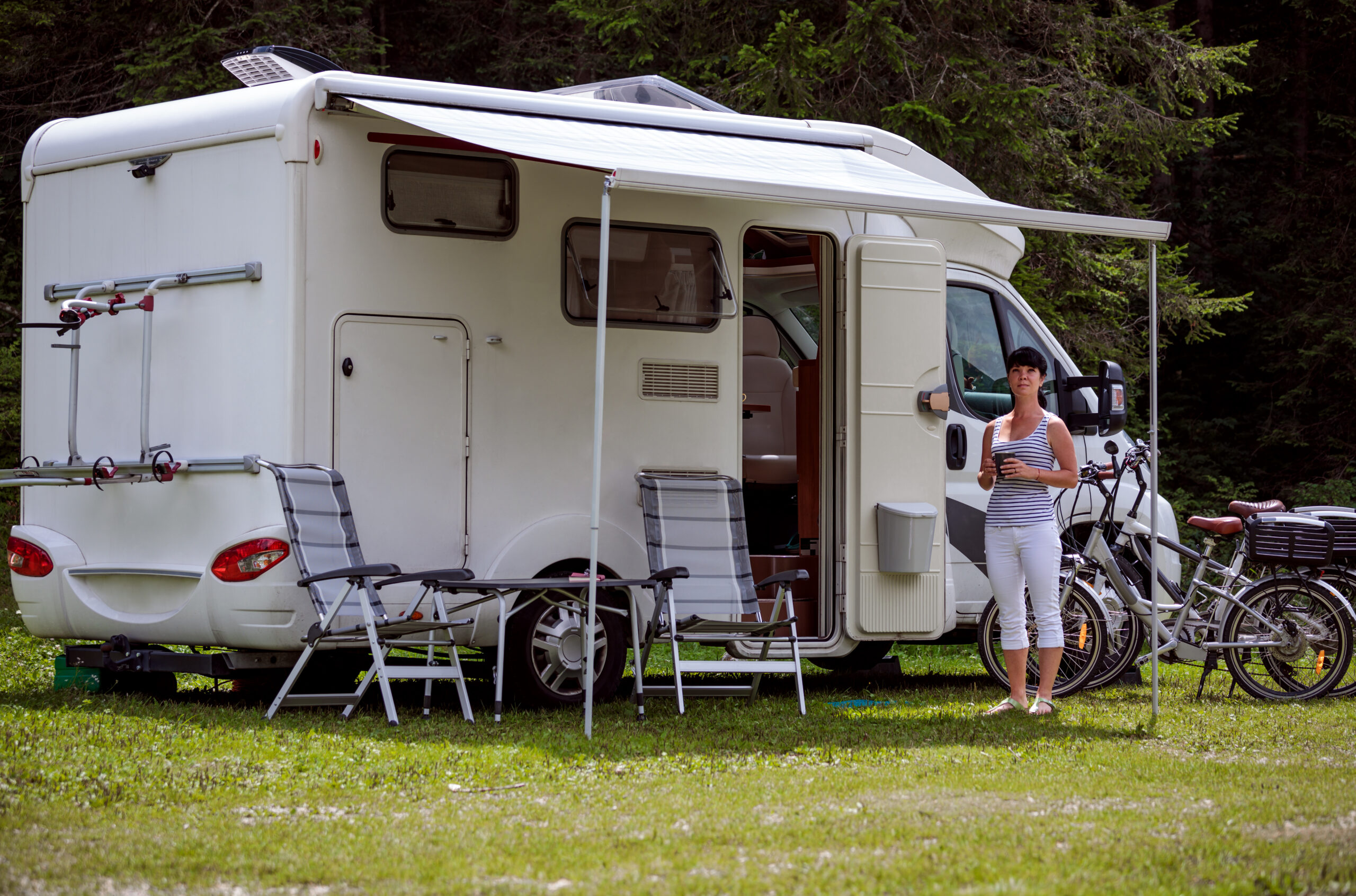Looking to maximize revenue at your campground? Long-term stays might just be the answer you’re looking for.
While short-term stays have long been a staple, savvy campground owners are increasingly turning their attention to the potential of long-term stays. These extended accommodations not only provide a steady income stream but also cultivate a sense of community and stability within the campground environment.
Understanding and effectively leveraging long-term stay opportunities is a pathway to sustainable growth and enhanced guest satisfaction. By offering amenities and services that cater to the needs of long-term guests, campground owners can attract a loyal clientele while minimizing the seasonal ebbs and flows that often challenge the hospitality industry.
This article delves into the intricacies of revenue optimization through long-term stays, exploring best practices, challenges, and innovative strategies that empower campground owners to thrive in a competitive market.
What Is Revenue Optimization?
Revenue optimization in the context of campgrounds refers to the strategic process of maximizing income and enhancing financial performance through various tactics and initiatives. It involves analyzing revenue streams, identifying growth opportunities, and implementing effective pricing strategies to achieve optimal results.
Importance of Revenue Optimization
For campground owners, revenue optimization is crucial for several reasons:
- Stability and Predictability: By diversifying revenue streams beyond traditional short-term stays, campground owners can achieve greater stability throughout the year. Long-term stays provide a consistent income base that mitigates the seasonal fluctuations common in the hospitality industry. This stability allows owners to plan more effectively, allocate resources efficiently, and maintain financial health year-round.
- Enhanced Guest Satisfaction: Optimizing revenue involves aligning pricing with the value offered, ensuring that guests perceive their experience as worth the cost. This approach not only attracts guests but also enhances their satisfaction, leading to positive reviews, repeat visits, and referrals.
- Operational Efficiency: Effective revenue optimization requires streamlined operations and efficient use of resources. By implementing campground management software and automation tools, owners can streamline booking processes, manage guest communications, and track financial metrics in real time.
- Competitive Advantage: In a competitive market, campground owners who optimize revenue gain a significant edge. They can invest in property enhancements, offer competitive pricing, and develop unique experiences that differentiate their campground from others. This competitive advantage attracts both short-term travelers and long-term residents who seek value and quality in their accommodations.
Strategies for Effective Revenue Optimization
To effectively optimize revenue through long-term stays, campground owners should consider these strategies:
- Market Analysis: Conduct thorough market research to understand local demand for long-term stays. Identify target demographics, seasonal trends, and competitor offerings to inform pricing and marketing strategies.
- Dynamic Pricing: Implement dynamic pricing strategies that adjust rates based on demand, seasonality, and booking patterns. Offer discounts for extended stays to incentivize longer bookings while maximizing revenue per guest.
- Enhanced Amenities: Invest in amenities and facilities that appeal to long-term guests, such as laundry facilities, Wi-Fi access, recreational areas, and communal spaces. These amenities enhance the guest experience and justify premium pricing for extended stays.
- Promotional Campaigns: Launch targeted marketing campaigns that highlight the benefits of long-term stays. Utilize digital marketing channels, social media platforms, and partnerships with local businesses to reach potential guests and promote your campground’s unique offerings.
By focusing on revenue optimization through long-term stays, campground owners can not only increase profitability but also create a sustainable business model that thrives amidst industry challenges and economic fluctuations.
What Are the Differences Between Short-Term and Long-Term Stays?

The distinction between short-term and long-term stays at campgrounds lies primarily in the duration and purpose of guest visits.
Short-term stays typically span from a few days to a couple of weeks, catering to travelers seeking temporary lodging during vacations, weekend getaways, or short-term work assignments. These guests often prioritize convenience, proximity to attractions, and the flexibility to explore different destinations within a relatively brief timeframe.
In contrast, long-term stays extend for a month or more, accommodating guests who require more extended accommodations due to work contracts, seasonal travel, or lifestyle choices such as full-time RV living. Long-term guests seek stability, affordability, and a sense of community in their temporary residences.
Understanding these differences is crucial for campground owners to tailor their offerings, pricing strategies, and guest experiences accordingly. By catering to both short-term and long-term guests effectively, owners can optimize occupancy rates, enhance guest satisfaction, and maximize revenue throughout the year.
What Are the Challenges of Offering Long-Term Stays?
While long-term stays can provide a stable revenue stream and foster guest loyalty, they also present unique challenges that campground owners must navigate effectively to ensure operational success and guest satisfaction.
Seasonal Variability and Occupancy Management
One of the primary challenges of offering long-term stays is seasonal variability in occupancy rates. Unlike short-term stays that often peak during tourist seasons or holidays, long-term stays can experience fluctuations based on factors such as weather conditions, local events, and economic trends.
Managing these fluctuations requires proactive marketing strategies, dynamic pricing models, and targeted promotions to attract long-term guests during off-peak periods.
Maintenance and Infrastructure Management
Extended guest stays necessitate robust maintenance and infrastructure management. Campground facilities and amenities must be maintained at high standards to meet the prolonged use and expectations of long-term guests.
This includes regular upkeep of roads, utilities, landscaping, and recreational areas. Implementing a preventive maintenance schedule and responsive service protocols are essential to minimize disruptions and ensure a positive guest experience throughout their extended stay.
Guest Turnover and Community Dynamics
Balancing guest turnover with community dynamics poses another challenge. While short-term stays may result in frequent turnover of guests, long-term residents seek stability and community integration.
Campground owners must foster a welcoming community environment that encourages social interactions and engagement among long-term guests. Organizing social events, creating communal spaces, and promoting shared activities can cultivate a sense of belonging and enhance guest satisfaction.
Regulatory Compliance and Legal Considerations
Offering long-term stays requires compliance with regulatory and legal considerations specific to extended guest accommodations. Owners must navigate zoning laws, health and safety regulations, and tax requirements associated with extended stays.
Financial Management and Profitability
Achieving financial profitability while offering competitive rates for long-term stays requires strategic financial management. Owners must balance revenue goals with operational costs, including utilities, staffing, and maintenance expenses.
Implementing efficient cost controls, monitoring revenue performance metrics, and optimizing pricing strategies are essential to maintaining profitability while providing value to long-term guests.
What Are the Most Effective Strategies for Attracting and Retaining Long-Term Guests?

Attracting and retaining long-term guests requires a comprehensive approach that integrates strategic marketing initiatives, personalized guest experiences, and efficient operational management.
Here are detailed strategies that campground owners can implement to optimize occupancy rates and foster guest loyalty:
Comprehensive Market Analysis and Targeted Marketing Campaigns
Begin by conducting a comprehensive market analysis to identify the demand for long-term stays in your campground’s geographic area. Understand the demographic profiles, seasonal trends, and competitor offerings to tailor your marketing efforts effectively. Develop targeted marketing campaigns that highlight the benefits of long-term stays, such as affordability, community atmosphere, and enhanced amenities.
To conduct a thorough market analysis, utilize data from local tourism boards, industry reports, and guest surveys to gain insights into guest preferences and booking behaviors. Identify peak and off-peak seasons to strategize pricing and promotions accordingly. Collaborate with local businesses and tourism partners to cross-promote your campground and attract long-term guests seeking extended stays.
Craft compelling messaging that resonates with your target audience’s lifestyle and preferences. Emphasize the unique advantages of staying long-term at your campground, such as proximity to nature, recreational opportunities, and a supportive community environment.
Enhanced Guest Experience and Personalized Services
Create a memorable guest experience by offering personalized services that cater to the unique needs of long-term guests. This includes providing flexible check-in/check-out options, accommodating special requests, and maintaining open communication throughout their stay.
Empower your staff to deliver exceptional service by investing in training programs that emphasize hospitality, problem-solving, and interpersonal skills. Encourage staff members to engage with guests on a personal level, offering recommendations for local attractions, dining options, and community events.
Leveraging Reservation Management Systems
Reservation management systems play a pivotal role in optimizing the booking process for long-term guests. These systems streamline reservation workflows, automate booking confirmations and reminders, and centralize guest communication.
Implementing a user-friendly booking interface that allows guests to easily modify their reservations and select preferred amenities enhances convenience and promotes guest satisfaction. Adjust pricing strategies based on demand fluctuations and guest booking behaviors to maximize revenue while maintaining competitive rates for long-term stays.
Roverpass’ campground reservation software is a cloud-based reservation system that allows you to track your availability in one central view. This facilitates the task of customizing rates based on occupancy, season, time of stay, or any other criteria for your dynamic pricing strategy.
Community Engagement and Social Connectivity
Foster a sense of community among long-term guests by organizing community engagement activities and creating social connectivity opportunities.
Host regular social events, potluck dinners, or outdoor activities that encourage interaction and camaraderie among residents. Develop communal spaces like picnic areas, recreation centers, or walking trails where guests can connect and build relationships.
Encourage guests to participate in campground-sponsored activities such as nature hikes, yoga classes, or local excursions that promote wellness and community bonding. Facilitate volunteer opportunities or community service projects that allow guests to contribute positively to the local area and feel integrated into the campground community.
Flexible Pricing and Value-Added Packages
Offer flexible pricing options and value-added packages that appeal to long-term guests seeking cost-effective accommodations. Consider discounted rates for extended stays, seasonal promotions, or inclusive packages that bundle amenities such as Wi-Fi access, laundry services, and recreational facilities.
Offer incentives such as early booking discounts, referral rewards, or loyalty programs that encourage repeat visits and foster guest loyalty. Monitor competitor pricing and industry trends to remain competitive while maximizing revenue from long-term stays.
Proactive Guest Communication and Feedback Mechanisms
Establish proactive communication channels to keep long-term guests informed and engaged throughout their stay. Provide regular updates on campground activities, upcoming events, and any maintenance schedules that may affect their experience.
Encourage feedback through surveys, suggestion boxes, or online review platforms to gather insights and continuously improve services based on guest preferences. Utilize guest feedback to identify areas for enhancement, address concerns promptly, and implement proactive solutions that enhance the overall guest experience.
You can also implement a guest loyalty program that rewards frequent visitors with exclusive benefits, discounts, or personalized perks that recognize their long-term commitment to your campground.
Sustainable Operations and Environmental Stewardship
Demonstrate commitment to sustainable operations and environmental stewardship practices, which resonate with guests seeking eco-friendly accommodations. Implement energy-efficient technologies, waste reduction initiatives, and eco-conscious policies that align with sustainable tourism practices. Communicate these efforts to guests to reinforce your campground’s commitment to environmental responsibility and community well-being.
Engage guests in sustainable initiatives such as recycling programs, water conservation efforts, or organic gardening projects that promote environmental awareness and conservation. Partner with local organizations, conservation groups, or environmental advocates to support community sustainability efforts and educate guests about eco-friendly practices.
Implementing Digital Marketing Strategies
Effective digital marketing strategies can significantly enhance your campground’s visibility and attract long-term guests. Here are key tactics to consider:
- Utilizing Search Engine Optimization (SEO): Optimize website content with relevant keywords related to long-term stays and campground amenities. Focus on local SEO to attract guests searching for accommodations in your area. Build quality backlinks from local directories, travel blogs, and industry websites to boost authority.
- Engaging Social Media Marketing: Maintain active profiles on social media platforms like Facebook, Instagram, and Twitter. Share engaging content such as guest testimonials, campground events, and behind-the-scenes updates. Use targeted ads to reach potential guests based on demographics, interests, and location.
- Implementing Pay-Per-Click (PPC) Advertising: Run PPC campaigns on Google Ads or Bing Ads to target specific keywords related to long-term stays. Design compelling ad copy that highlights your campground’s unique selling points and promotional offers. Monitor campaign performance and adjust bids to maximize ROI and conversion rates. Also, by regularly using PPC reporting, you can identify underperforming ads and take corrective actions.
- Developing a High-Quality Website: Create a user-friendly website that highlights amenities, local attractions, and booking options. Ensure the website is mobile-responsive for seamless browsing on all devices. Implement SEO best practices to improve search engine rankings and drive organic traffic.
To help RV parks create high-quality websites, RoverPass created a solution called Premium Website Builder. Our skilled team of writers, designers, and developers can create a website that is fully equipped to boost your traffic, attract more leads, and increase your revenue.
Frequently Asked Questions
- What is revenue optimization in the context of campgrounds?
Revenue optimization for campgrounds involves maximizing income by strategically managing pricing, occupancy rates, and guest services. It includes analyzing market demand, adjusting rates dynamically, offering value-added packages, and leveraging technology to streamline operations and enhance guest experiences.
- How can offering long-term stays benefit campground owners?
Offering long-term stays can stabilize revenue, reduce vacancy rates, and foster guest loyalty. Long-term guests often engage more with the community, leading to positive reviews and referrals. This approach also allows for predictable income and lower marketing costs compared to constantly attracting short-term visitors.
- What are the main differences between short-term and long-term stays?
Short-term stays are usually for a few days to a week, focusing on transient travelers. Long-term stays extend for weeks or months, catering to guests seeking stability and community. Long-term guests typically require different amenities, flexible pricing, and more personalized services compared to short-term visitors.
- What challenges do campground owners face when offering long-term stays?
Challenges include managing the diverse needs of long-term guests, maintaining a consistent level of service, adjusting pricing strategies, and addressing potential wear and tear on facilities. Owners must also navigate zoning regulations, provide adequate amenities, and create a welcoming community atmosphere.
- How can campground owners attract long-term guests?
To attract long-term guests, owners should conduct market research, offer flexible pricing, and create targeted marketing campaigns. Enhancing guest experiences through personalized services, engaging community activities, and leveraging reservation management systems also helps in attracting and retaining long-term visitors.
- What role do reservation management systems play in managing long-term stays?
Reservation management systems streamline booking processes, automate communications, and provide valuable data analytics. These systems enable campground owners to manage availability, adjust pricing dynamically, and enhance guest satisfaction by offering seamless booking experiences and personalized service options.
- Why is digital marketing important for attracting long-term guests?
Digital marketing enhances visibility and engagement with potential long-term guests. A strong online presence, including an optimized website, SEO, PPC advertising, and active social media engagement, helps reach the target audience effectively. Digital marketing also allows for targeted campaigns and measurable results.
- What are some best practices for retaining long-term guests?
Retaining long-term guests involves providing exceptional service, creating a sense of community, and offering value-added packages. Regular communication, feedback mechanisms, and personalized experiences contribute to guest satisfaction. Implementing sustainable practices and maintaining high standards also encourage repeat visits.
Keep exploring our blog for more insights on enhancing your campground’s profitability and guest satisfaction through strategic management and innovative solutions.






